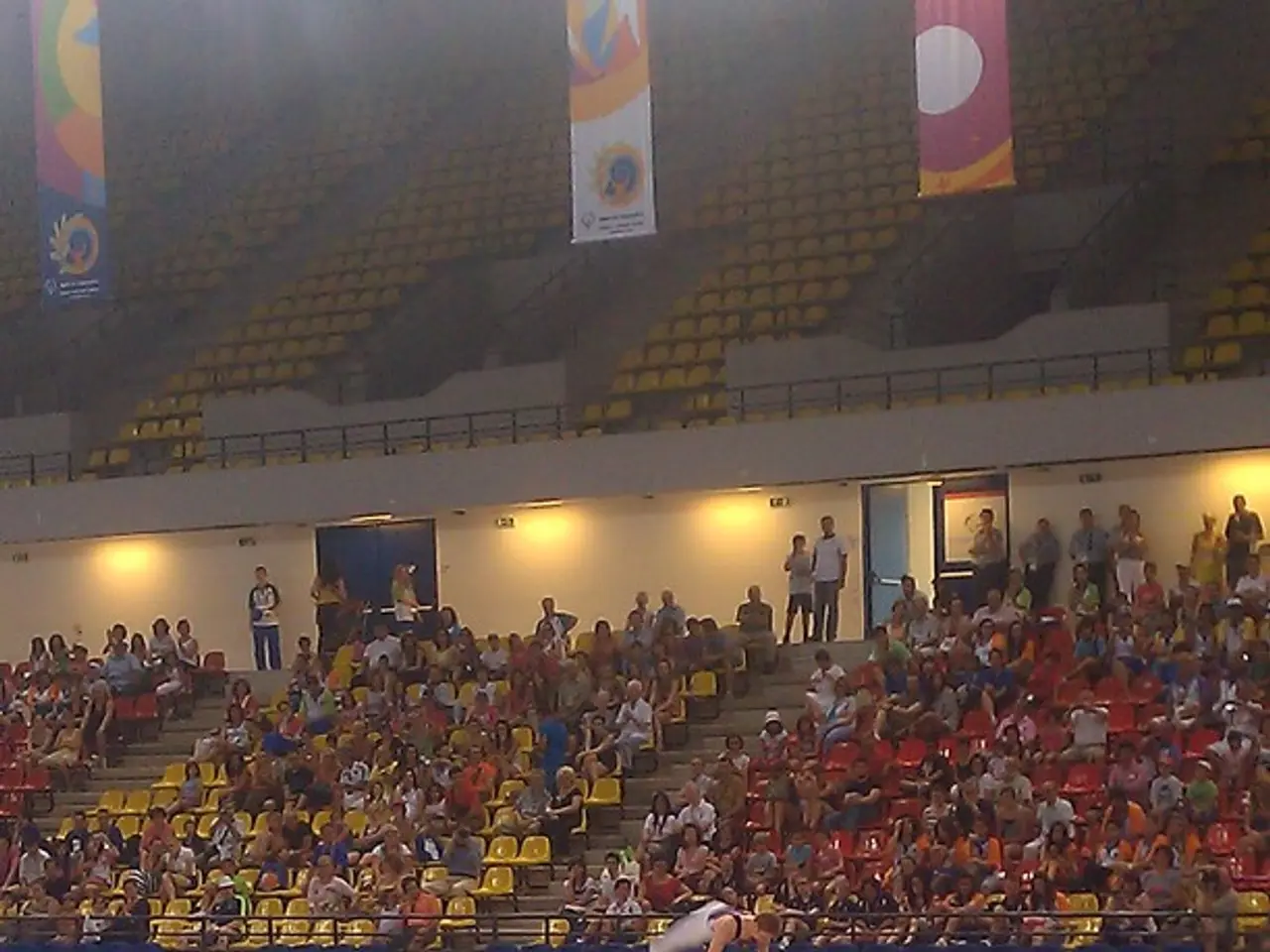Athletic Excellence in Asia to be Showcased in Diamond League to Olympic Years, 2024-25
Asian Athletes Shine in Global Competitions
In the world of sports, Asia is making a significant mark, with athletes rewriting record books and commanding global podiums. This shift in power towards the East is not only limited to traditional sports but also extends to emerging domains such as esports.
Recently, China's Zhang Mingkun captured the men's long jump at the Diamond League stop in Xiamen, China, with a leap of 8.18 meters. His performance garnered over 200 million views on Chinese social media platform Weibo within 24 hours, highlighting the growing interest in Asian athletics.
In the same event, Su Bingtian, a retiring sprint star, won the 60 meters in 6.65 seconds, marking his final race over the short dash. Meanwhile, the Chinese 4×400-meter relay team sits inside the year's top eight times, a cutoff used to forecast finalists at major meets. The anchor of the team revealed that he sometimes practices baton handoffs six times a day, showcasing the team's dedication and discipline.
The trend of athletes performing at high levels at older ages is also evident in Asia. For instance, shot-putter Gong Lijiao, 35, claimed Diamond League bronze with a throw of 19.62 meters.
Asian countries are diversifying athletic disciplines and investing in both traditional and new sports like esports. Esports, initially a demonstration sport in the 2018 Asian Games, became a medal event by 2022 and will feature an expanded lineup of 13 titles in the 2026 Asian Games in Japan.
Individual athletes from Asian countries continue to achieve prominence in various fields. Sixteen-year-old Chen Yujie shattered the Asian youth 200-meter record with a time of 22.99 seconds at the Xiamen meet. Teachers at her school highlighted her disciplined study habits as a model of the student-athlete balance that Chinese educators encourage.
The implications of these advancements are far-reaching. Asian countries are developing dynamic sports ecosystems, enhancing international competitiveness, and broadening cultural narratives around sports. Growing success and visibility of Asian athletes inspire national pride and promote youth engagement in diverse athletic fields, including non-physical but skill-intensive ones like esports.
Sporting success also bolsters soft power for Asian nations, enhancing their global image, fostering regional integration, and potentially shifting the geopolitical balance as countries leverage sports diplomacy.
One such example is table-tennis phenom Sun Yingsha, who carried Asia's flag during the Paris 2024 Olympic closing ceremony after winning two gold medals and one silver. China's men's 4×400-meter relay quartet also broke the national record and secured a lane at the Tokyo 2025 World Athletics Championships.
In summary, Asian athletic achievements are rapidly advancing, underpinned by strategic investments and cultural shifts, with significant implications for the global sports landscape, cultural identity, and international relations.
In the evolution of sports, Asia's growing prominence extends not only to traditional disciplines but also to emerging ones like football and esports. Last year, the Chinese Football Association announced plans to invest $840 million over the next decade to develop youth football, aiming to have a national team in the World Cup by 2050.
For instance, the Asian Football Confederation's U-16 championship saw participation from numerous countries, with teams showcasing impressive skills and tactical understanding, hinting at a promising future for Asian football.








